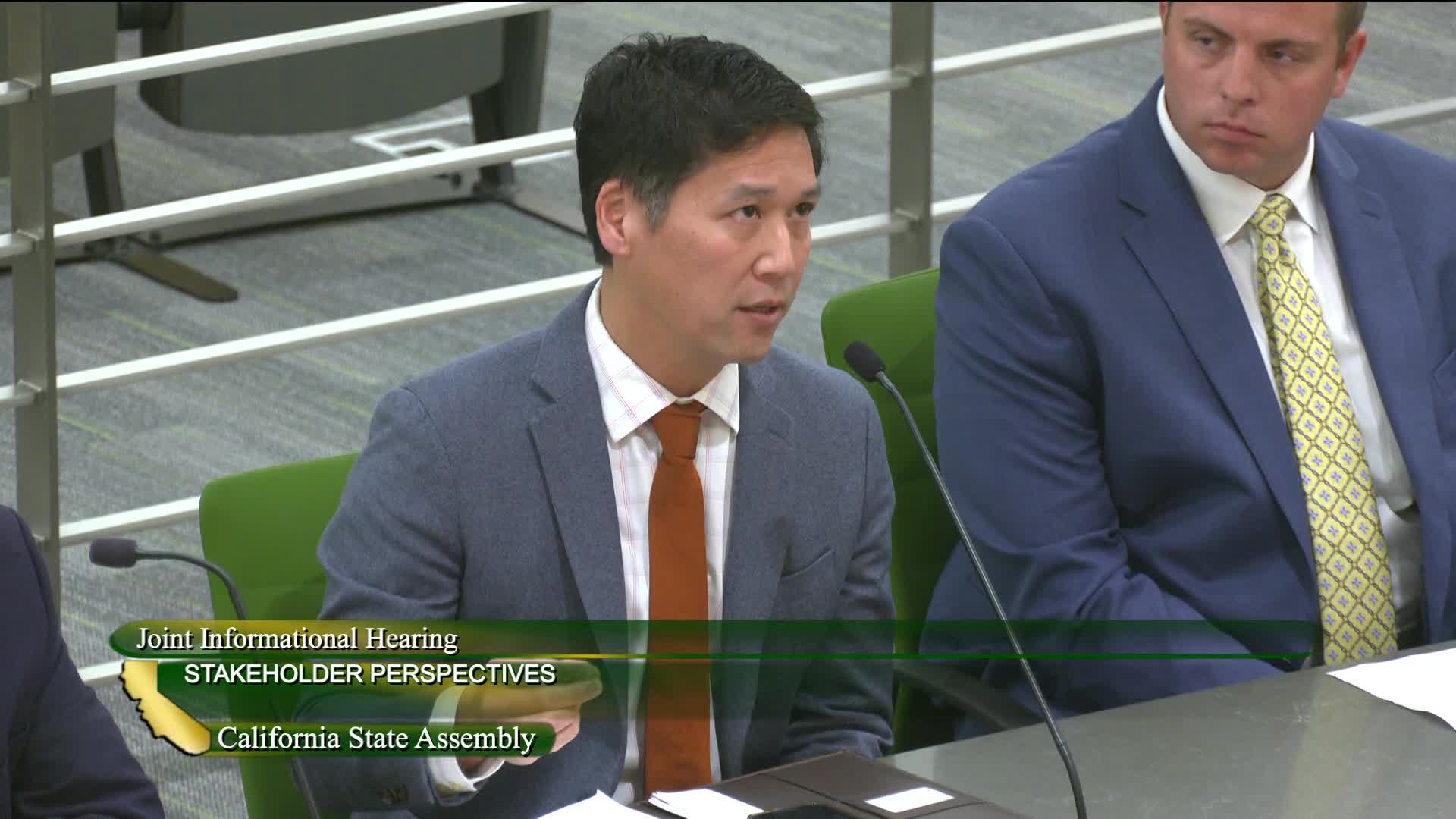Policy Leaders Discuss AI Equity and Patient Rights in California Healthcare
May 28, 2025 | California State Assembly, House, Legislative, California
This article was created by AI summarizing key points discussed. AI makes mistakes, so for full details and context, please refer to the video of the full meeting. Please report any errors so we can fix them. Report an error »

In a pivotal assembly meeting held on May 28, 2025, California lawmakers and health experts gathered to discuss the intersection of artificial intelligence (AI) and healthcare, focusing on the urgent need for equitable access to AI tools in primary care settings. The atmosphere was charged with a sense of urgency as panelists highlighted the disparities in AI development and deployment across different healthcare sectors.
Dr. Sujimoto, a key speaker, emphasized the critical role of primary care in the healthcare safety net, pointing out that while AI tools have seen significant FDA approvals in specialties like radiology and cardiology, primary care remains largely underserved. "We need leadership to incentivize developers to focus on primary care," he urged, noting that the current payment structures do not support innovation in this essential area. This lack of investment in primary care AI solutions exacerbates health inequities, leaving vulnerable populations at a disadvantage.
Brenton Hill, representing the Coalition for Health AI, outlined four pressing issues that need addressing: the lack of trust and transparency in AI, health inequities due to uneven AI readiness, insufficient validation of AI tools, and fragmented regulatory guidance. He advocated for standardized disclosure frameworks to enhance transparency and called for policies that promote inclusive data practices, ensuring that under-resourced health centers can effectively adopt AI technologies.
David Ford, CEO of CMA Physician Services, echoed these sentiments, warning of a potential divide between well-resourced healthcare systems and smaller practices. He highlighted the importance of translating successful AI models from larger institutions to community health centers and critical access hospitals, ensuring that all Californians benefit from technological advancements.
Christine Von Raesfeld, a board member of the Light Collective, brought a patient-centered perspective to the discussion. She stressed the need for enforceable rights governing AI use in healthcare, advocating for patient-led governance and transparency. "Patients are not mere data points," she asserted, calling for legislation that protects patient rights and ensures AI serves their interests rather than corporate profits.
As the meeting concluded, the assembly members reflected on the power of California's purchasing influence in shaping a healthcare market that prioritizes responsible AI development. The discussions underscored a collective commitment to fostering an equitable healthcare landscape where AI can enhance patient care without compromising safety or access. The urgency of these conversations signals a critical moment for policymakers to act decisively in shaping the future of healthcare technology in California.
Dr. Sujimoto, a key speaker, emphasized the critical role of primary care in the healthcare safety net, pointing out that while AI tools have seen significant FDA approvals in specialties like radiology and cardiology, primary care remains largely underserved. "We need leadership to incentivize developers to focus on primary care," he urged, noting that the current payment structures do not support innovation in this essential area. This lack of investment in primary care AI solutions exacerbates health inequities, leaving vulnerable populations at a disadvantage.
Brenton Hill, representing the Coalition for Health AI, outlined four pressing issues that need addressing: the lack of trust and transparency in AI, health inequities due to uneven AI readiness, insufficient validation of AI tools, and fragmented regulatory guidance. He advocated for standardized disclosure frameworks to enhance transparency and called for policies that promote inclusive data practices, ensuring that under-resourced health centers can effectively adopt AI technologies.
David Ford, CEO of CMA Physician Services, echoed these sentiments, warning of a potential divide between well-resourced healthcare systems and smaller practices. He highlighted the importance of translating successful AI models from larger institutions to community health centers and critical access hospitals, ensuring that all Californians benefit from technological advancements.
Christine Von Raesfeld, a board member of the Light Collective, brought a patient-centered perspective to the discussion. She stressed the need for enforceable rights governing AI use in healthcare, advocating for patient-led governance and transparency. "Patients are not mere data points," she asserted, calling for legislation that protects patient rights and ensures AI serves their interests rather than corporate profits.
As the meeting concluded, the assembly members reflected on the power of California's purchasing influence in shaping a healthcare market that prioritizes responsible AI development. The discussions underscored a collective commitment to fostering an equitable healthcare landscape where AI can enhance patient care without compromising safety or access. The urgency of these conversations signals a critical moment for policymakers to act decisively in shaping the future of healthcare technology in California.
View full meeting
This article is based on a recent meeting—watch the full video and explore the complete transcript for deeper insights into the discussion.
View full meeting
